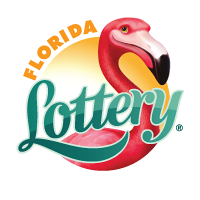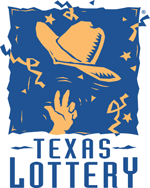Related Research Articles

A lottery is a form of gambling that involves the drawing of numbers at random for a prize. Some governments outlaw lotteries, while others endorse it to the extent of organizing a national or state lottery. It is common to find some degree of regulation of lottery by governments. The most common regulations are prohibition of sale to minors and licensing of ticket vendors. Although lotteries were common in the United States and some other countries during the 19th century, by the beginning of the 20th century, most forms of gambling, including lotteries and sweepstakes, were illegal in the U.S. and most of Europe as well as many other countries. This remained so until well after World War II. In the 1960s, casinos and lotteries began to re-appear throughout the world as a means for governments to raise revenue without raising taxes.

Mega Millions is an American multijurisdictional lottery game. The first drawing took place on September 6, 1996, with six participating states, Georgia, Illinois, Maryland, Michigan, Massachusetts, and Virginia. After growth of the game in 1997, a Tuesday Drawing was added in February 1998. As of June 30, 2023, it is offered in 45 states, the District of Columbia, and the U.S. Virgin Islands. The first Mega Millions drawing was in 2002. What is now Mega Millions initially was offered in six states, the logo for all versions of the game following the retirement of The Big Game name featured a gold-colored ball with six stars to represent the game's initial membership, although some lotteries insert their respective logos in the ball.
This is a list of the largest jackpots, or prizes, awarded in various lotteries.
Powerball is an American lottery game offered by 45 states, the District of Columbia, Puerto Rico and the U.S. Virgin Islands, and overseen by the Multi-State Lottery Association (MUSL), which also manages other large jackpot games such as the Mega Millions. Drawings are held three times weekly on Mondays, Wednesdays, and Saturdays at 10:59 p.m. Eastern Time, at the Florida Lottery's headquarters in Tallahassee.

The Georgia Lottery Corporation, known as the Georgia Lottery, is overseen by the government of Georgia, United States. Headquartered in Atlanta, the lottery takes in over US$1 billion yearly. By law, half of the money goes to prizes, one-third to education, and the remainder to operating and marketing the lottery. The education money funds the HOPE Scholarship, and has become a successful model for other lotteries, including the South Carolina Education Lottery.

The Florida Lottery is the government-operated lottery of the U.S. state of Florida. As of 2022, the lottery offers eleven terminal-generated games: Cash4Life, Mega Millions, Powerball, Florida Lotto, Pick 2, Pick 3, Pick 4, Pick 5, Fantasy 5, Cash Pop, and Jackpot Triple Play. A player must be 18 or older to play.

The California State Lottery began in October 1985 after voters authorized it in Proposition 37, the California State Lottery Act of 1984. It offers a range of games including number draws, scratchcards and a mock horse race. The earnings provide supplementary funding for public education.
Lotteries in Australia include various lottery related products licensed by The Lottery Corporation, The Lottery Office and Lotterywest Australian lottery companies. Lotteries operators are licensed at a state or territory level, and include both state government-owned, not-for-profit and private sector companies. Most major Lotteries have now moved into the online marketplace.

The New Zealand Lotteries Commission, trading as Lotto New Zealand since 2013, is a Crown entity that operates nationwide lotteries in New Zealand. It was established in 1987 and operates under the Gambling Act 2003. Its oldest and most popular game is Lotto, which boasts a top prize pool of NZ$1 million. Other games include the four-draws-daily Keno, the daily Bullseye, and a variety of scratchcards and online games known as Instant Kiwi. Instant Kiwi may only be played by persons 18 years of age or older, under the Gambling Act 2003. Powerball and Lotto Strike are optional extras with every Lotto ticket. Powerball is a jackpotting game, with a maximum jackpot of $50 million - after which a Must Be Won draw must be called.
The Maine Lottery is run by the government of Maine. It is a member of the Multi-State Lottery Association (MUSL), whose flagship game is Powerball. It was founded in 1974 after being approved through a voter referendum.

The Idaho Lottery began play on July 19, 1989, and is run by the government of the state of Idaho. It is a member of the Multi-State Lottery Association (MUSL). Fifty percent of all net funds is given to public schools, while the remainder is pledged to the Permanent Building Fund, which is used as a financial resource for the state's colleges and universities.

The Connecticut Lottery Corporation, also called the CT Lottery, is the official lottery in Connecticut. It was created in 1971 by then-Gov. Thomas Meskill, who signed Public Act No. 865. The first tickets were sold on February 15, 1972. The Connecticut Lottery offers several in-house drawing games; Connecticut also participates in Mega Millions and Powerball; each are played in 44 states, the District of Columbia, and the U.S. Virgin Islands.

The Texas Lottery is the government-operated lottery available throughout Texas. It is operated by the Texas Lottery Commission, headquartered in downtown Austin, Texas.

The Hoosier Lottery is the official state lottery of Indiana, and is the only US lottery that uses the state's nickname as its official name. It is a member of the Multi-State Lottery Association (MUSL). The Hoosier Lottery sells scratch-off tickets; its draw games include Mega Millions, Hoosier Lotto, Powerball, Cash 5, and Poker Lotto.
The Louisiana Lottery Corporation (LLC) is a government-run lottery that is used to generate revenue without increasing taxes. The proceeds of the Lottery go to the Minimum Foundation Program that funds public education in Louisiana. The daily activities involved with running the cooperation are handled by the president of the Louisiana Lottery Cooperation. The president is under the supervision of the Lottery's nine-member governing board of directors.
The Michigan Lottery was initiated under the authority of Public Act 239 in 1972, and collects funds to support Michigan’s public school system.
The Missouri Lottery is the state-run lottery in Missouri. It is a charter member of the Multi-State Lottery Association (MUSL). As of 2022, the lottery offers Powerball, Mega Millions, Cash4Life, Lotto, Show Me Cash, Pick 4, Pick 3, Cash Pop, Club Keno, scratchers, and pull-tabs. The minimum age to buy a ticket is 18.

The Illinois State Lottery is an American lottery for the U.S. state of Illinois, operated by Allwyn Illinois.

The Colorado Lottery is run by the state government of Colorado. It is a member of the Multi-State Lottery Association(MUSL).
The Vermont Lottery began fiscal operations as an enterprise fund in October 1977, following a 1976 referendum, and the enactment of Public Act No. 82 by the 1977 General Assembly. It is run by the Vermont Lottery Commission, which is headquartered in Berlin. Along with Maine and New Hampshire, Vermont is a member of the Tri-State Lottery.
References
- ↑ Sieczkowski, Cavan (28 November 2012). "Richard Lustig, 7-Time Lottery Winner, Gives Tips On Winning The Powerball Jackpot". Huffington Post . Retrieved 23 March 2013.
- 1 2 3 Little, Lineka (21 October 2010). "How One Man Became a Serial Lottery Winner". ABC News . Retrieved 23 March 2013.
- ↑ "Richard Lustig: His Secrets, His Book, and His Story Revealed".
- ↑ "Richard Lustig". Facebook. 2018.
- ↑ Reinartz, Joe (2018-09-13). "Agent, Lottery Winner Richard Lustig Passes". CelebrityAccess. Retrieved 2021-11-06.
- ↑ Kennedy, John (December 24, 2003). "Lottery, Legislators Tug at Unclaimed Jackpots". Orlando Sentinel . Retrieved 2021-11-06.
- ↑ Krasny, Jill (16 March 2012). "CNN Money Was Forced To Take Down This Idiotic Lottery Tips Video". Business Insider . Retrieved 17 January 2017.
- ↑ "Richard Lustig – A Tale of the Most Famous Lottery Winner". Lottery 'n Go. Retrieved 2022-06-27.
- ↑ Hartogs, Jessica (22 March 2013). "Seven-time Lottery Winner Shares Secret to Winning Powerball". CBS News . Retrieved 17 January 2017.
- ↑ Krasny, Jill (28 March 2012). "WARNING: Do Not Take Lottery Tips From The Guru On 'Good Morning America'". Business Insider . Retrieved 11 January 2016.
- ↑ Salmon, Felix (14 March 2012). "The worst personal-finance video ever". Reuters. Archived from the original on 15 March 2012. Retrieved 11 January 2016.
- ↑ Coenen, Tracy (27 April 2012). "Lottery Fraud: Increase Your Chances of Winning The Lottery". Sequence Inc. Retrieved 17 January 2017.
- ↑ "Richard Lustig's largest wins". Orlando Sentinel. 20 October 2010.